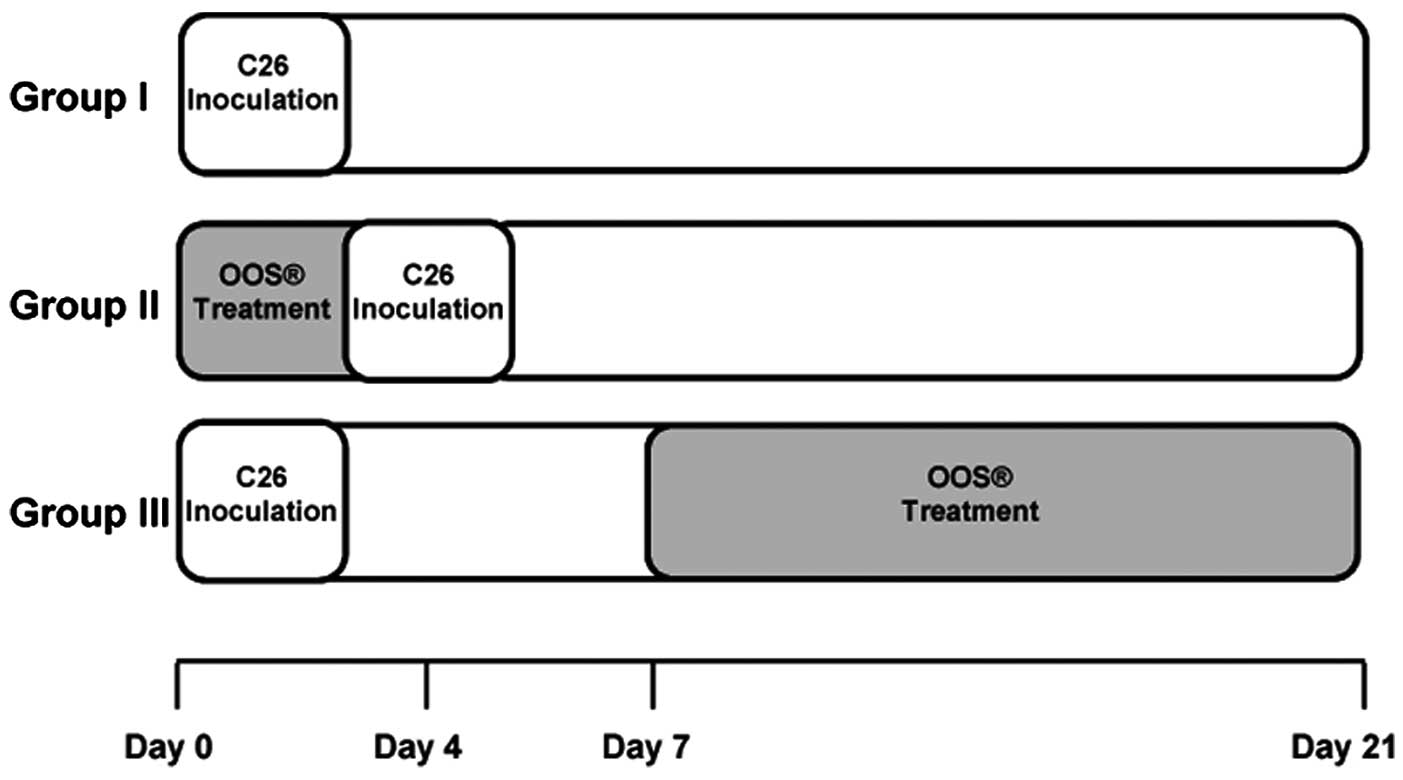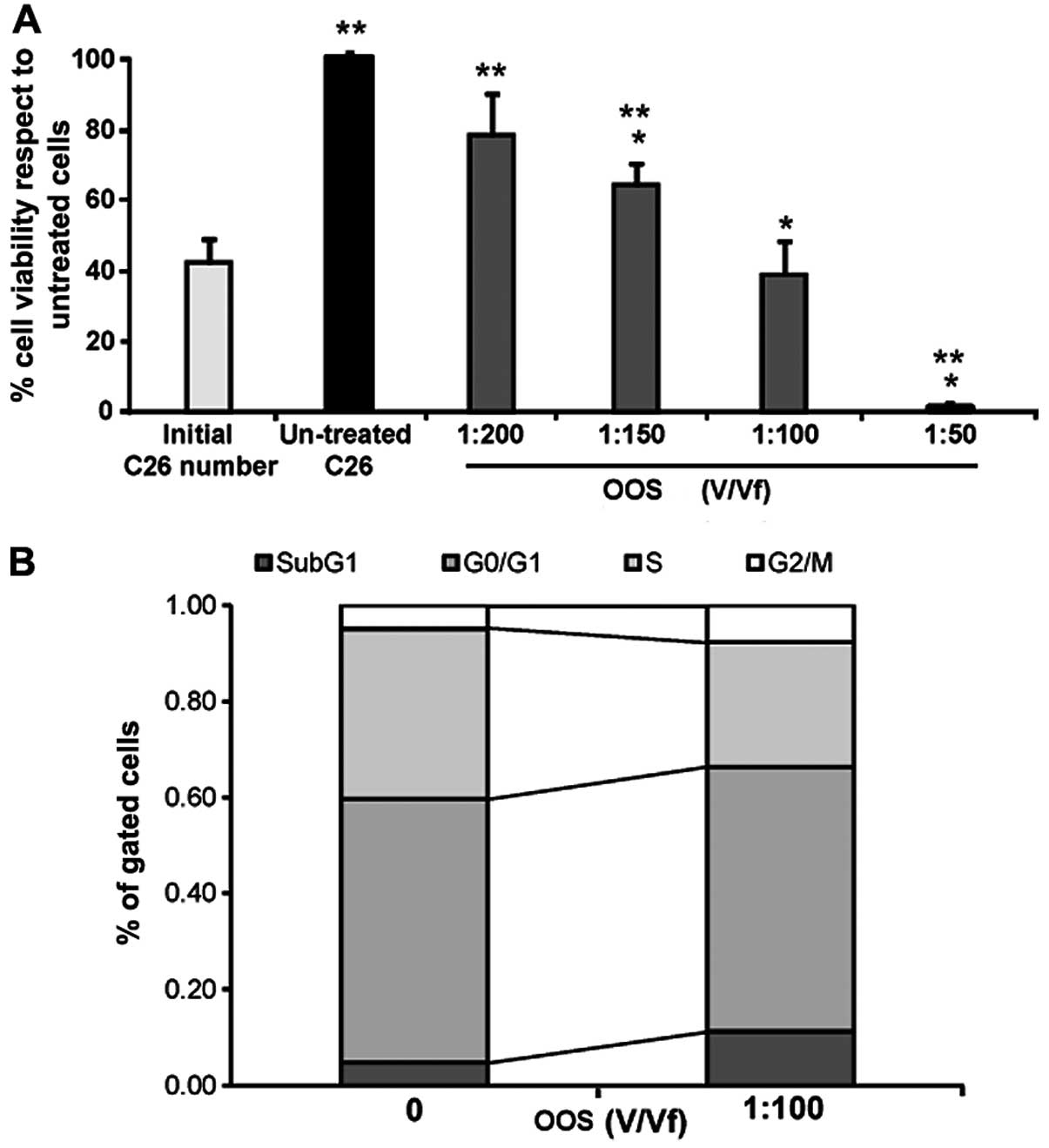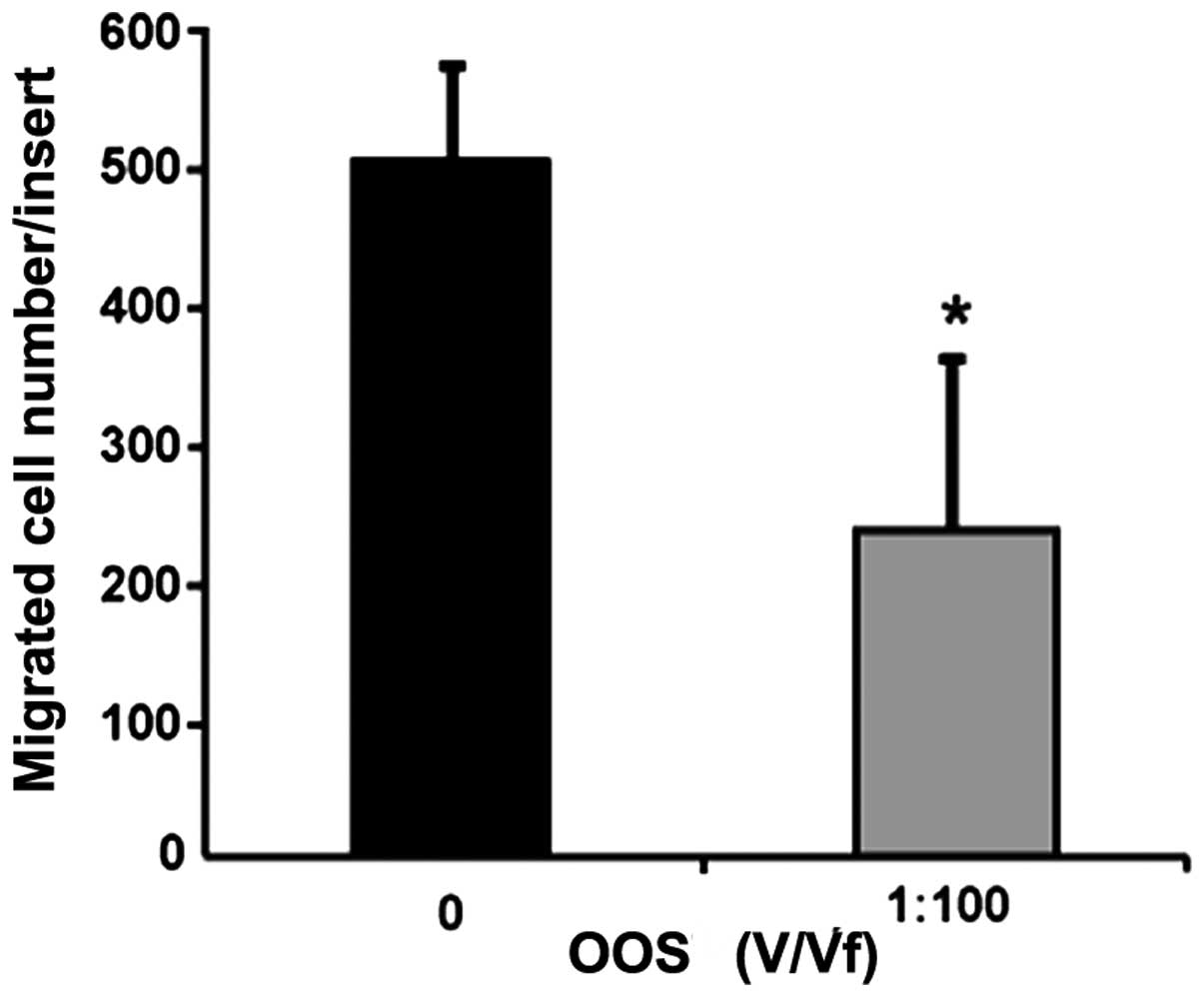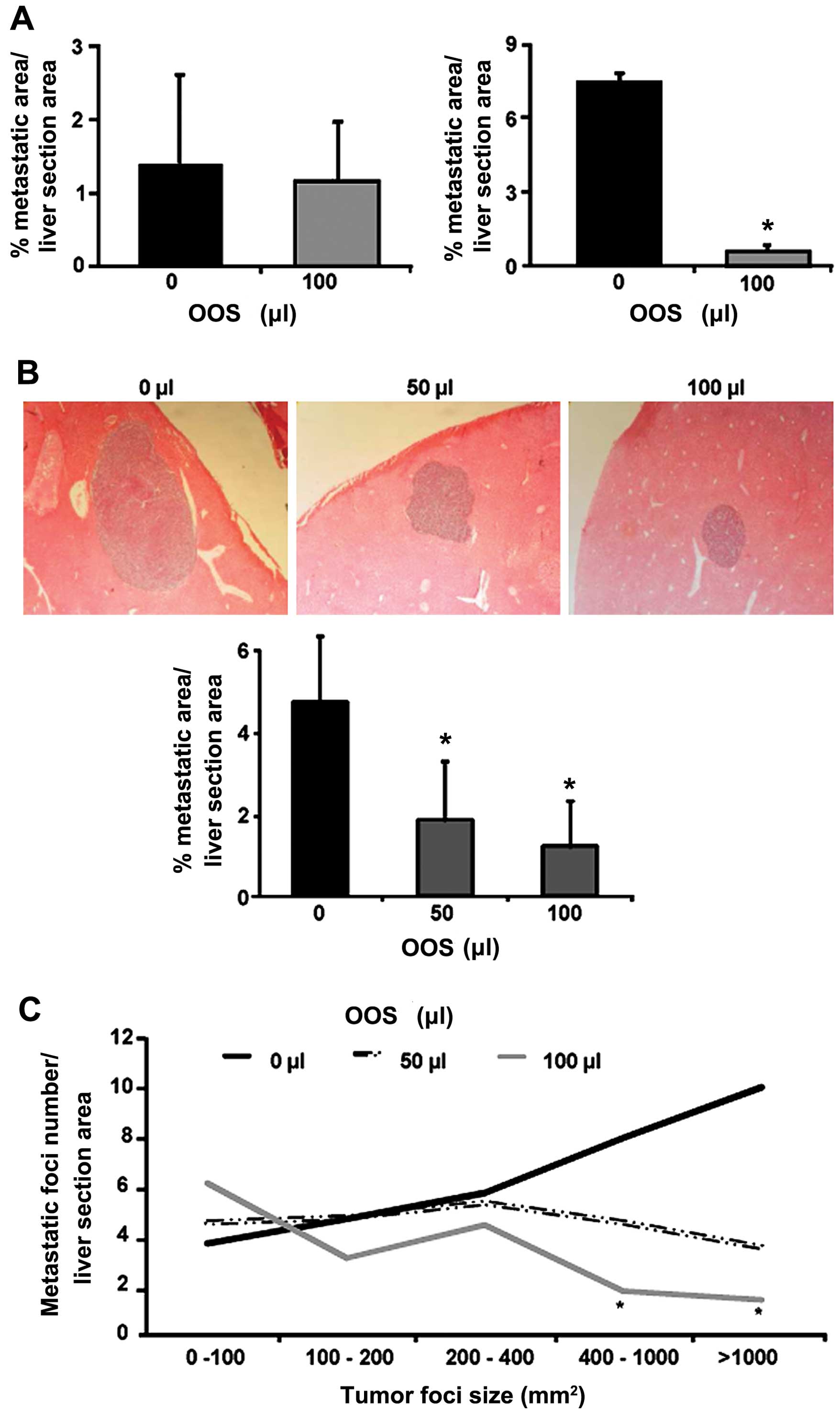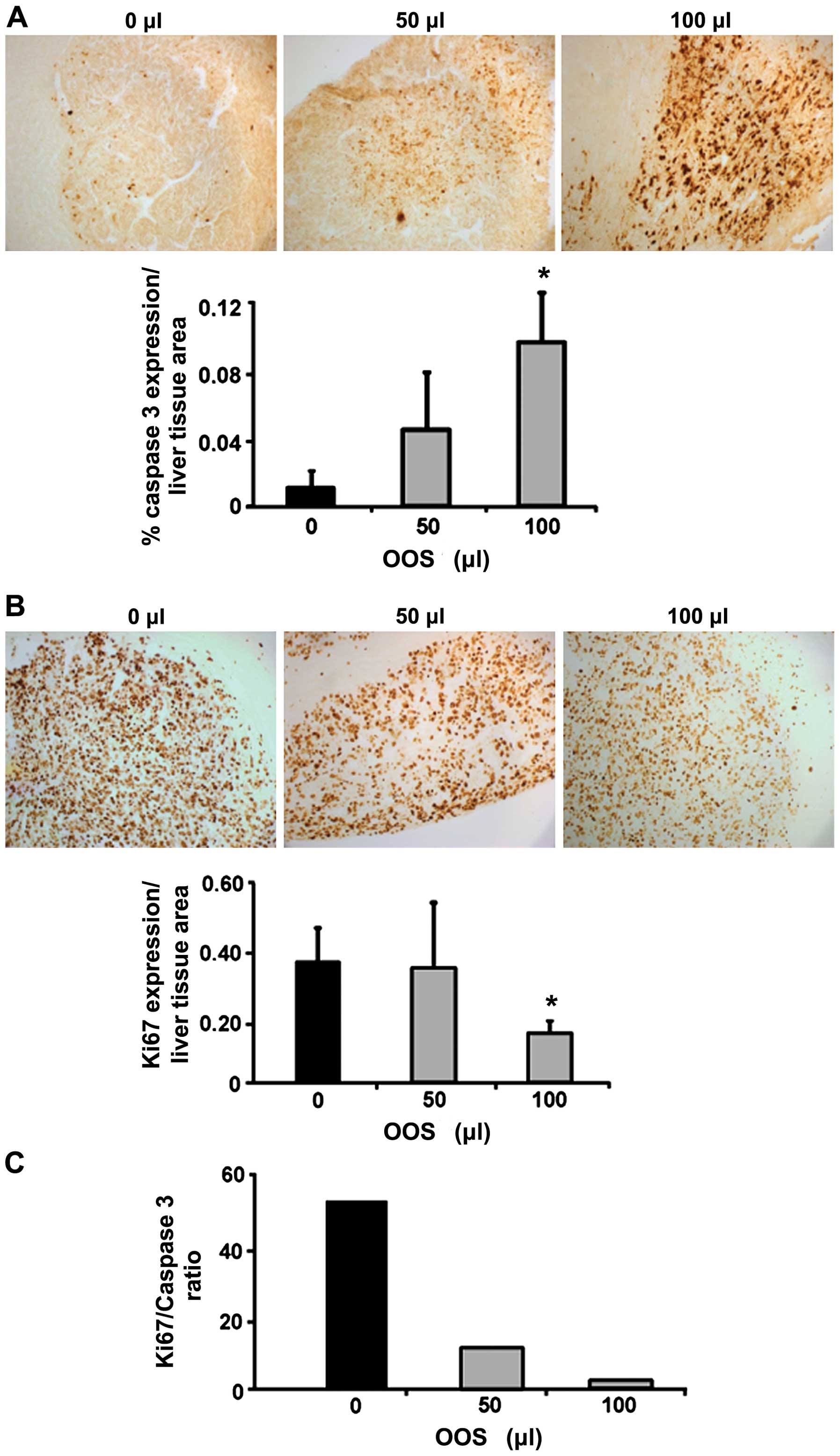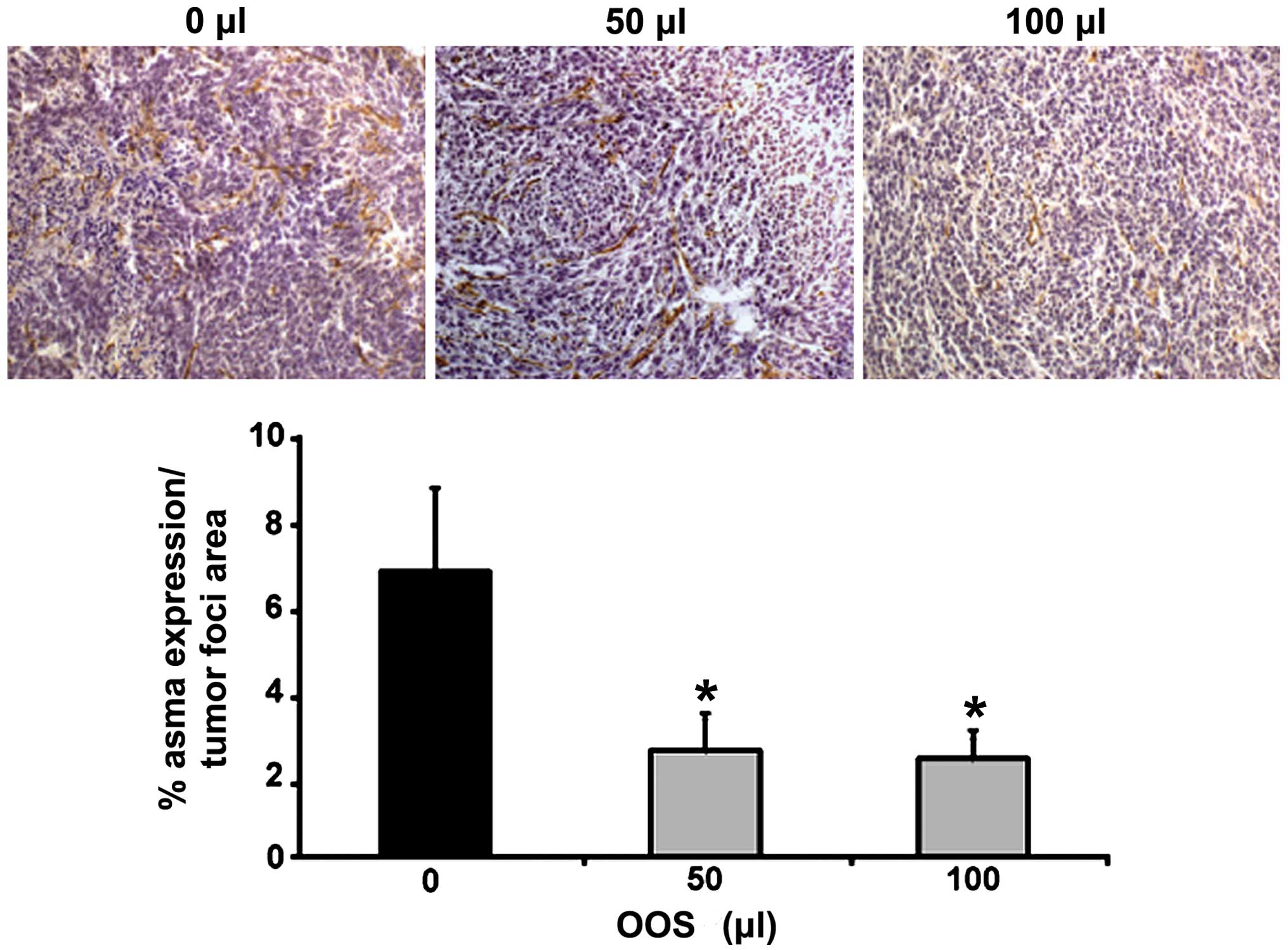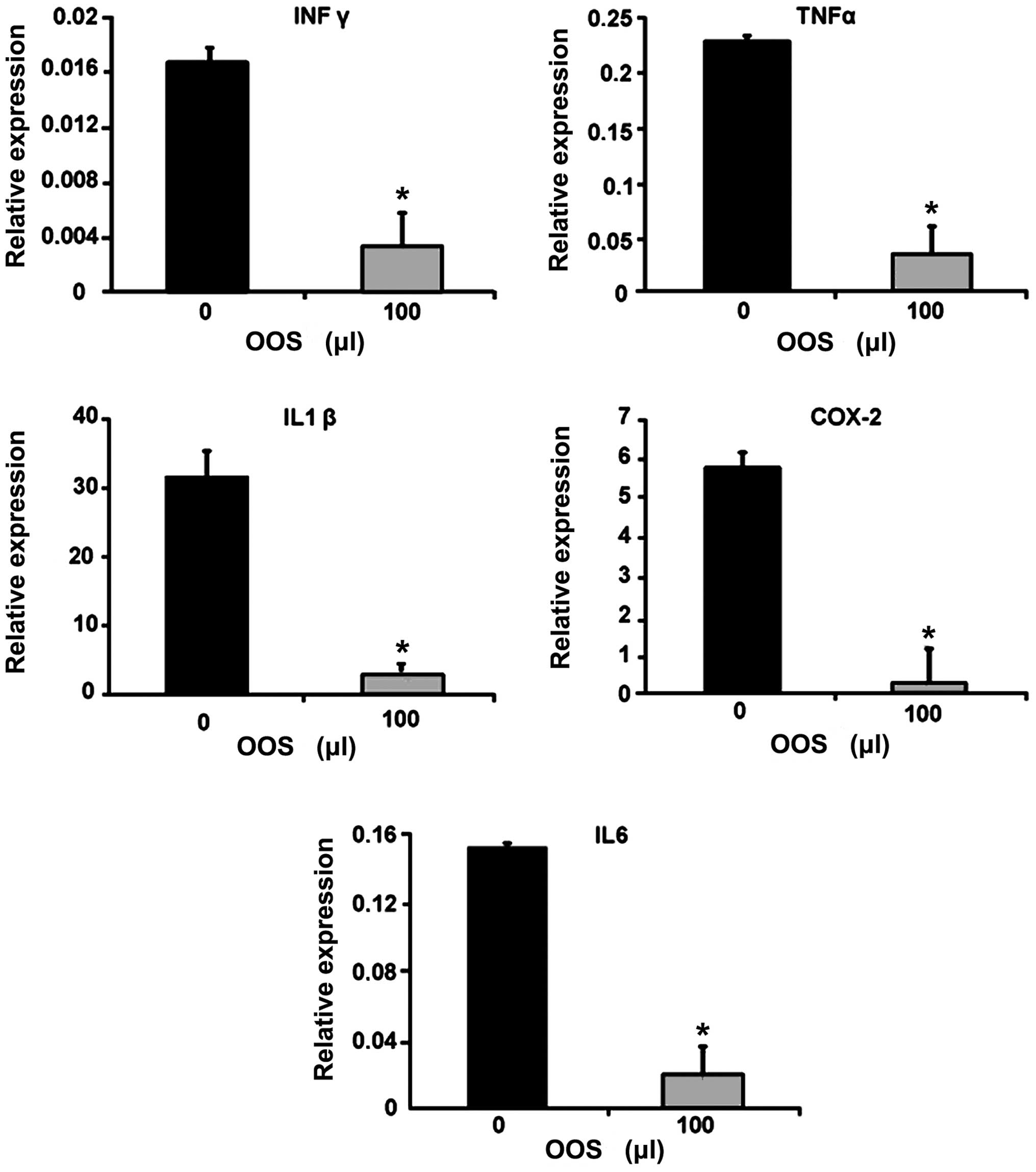|
1
|
Reuter S, Gupta SC, Chaturvedi MM and
Aggarwal BB: Oxidative stress, inflammation, and cancer: How are
they linked? Free Radic Biol Med. 49:1603–1616. 2010. View Article : Google Scholar : PubMed/NCBI
|
|
2
|
Mamlouk S and Wielockx B:
Hypoxia-inducible factors as key regulators of tumor inflammation.
Int J Cancer. 132:2721–2729. 2013. View Article : Google Scholar
|
|
3
|
Zhang Y, Tang H, Cai J, Zhang T, Guo J,
Feng D and Wang Z: Ovarian cancer-associated fibroblasts contribute
to epithelial ovarian carcinoma metastasis by promoting
angiogenesis, lymphangiogenesis and tumor cell invasion. Cancer
Lett. 303:47–55. 2011. View Article : Google Scholar : PubMed/NCBI
|
|
4
|
Shankar S, Suthakar G and Srivastava RK:
Epigallocatechin-3-gallate inhibits cell cycle and induces
apoptosis in pancreatic cancer. Front Biosci. 12:5039–5051. 2007.
View Article : Google Scholar : PubMed/NCBI
|
|
5
|
Goldberg ED, Amosova EN, Zueva EP, Razina
TG, Krylova SG and Zorikov PS: Licorice preparations improve
efficiency of chemotherapy and surgical treatment of transplanted
tumors. Bull Exp Biol Med. 145:252–255. 2008. View Article : Google Scholar
|
|
6
|
Ma YC, Li C, Gao F, Xu Y, Jiang ZB, Liu JX
and Jin LY: Epigallocatechin gallate inhibits the growth of human
lung cancer by directly targeting the EGFR signaling pathway. Oncol
Rep. 31:1343–1349. 2014.
|
|
7
|
Maruyama T, Murata S, Nakayama K, Sano N,
Ogawa K, Nowatari T, Tamura T, Nozaki R, Fukunaga K and Ohkohchi N:
(−)-Epigallocatechin-3-gallate suppresses liver metastasis of human
colorectal cancer. Oncol Rep. 31:625–633. 2014.
|
|
8
|
Roomi MW, Roomi N, Ivanov V, Kalinovsky T,
Niedzwiecki A and Rath M: Inhibition of pulmonary metastasis of
melanoma b16fo cells in C57BL/6 mice by a nutrient mixture
consisting of ascorbic Acid, lysine, proline, arginine, and green
tea extract. Exp Lung Res. 32:517–530. 2006. View Article : Google Scholar : PubMed/NCBI
|
|
9
|
Roomi MW, Kalinovsky T, Niedzwiecki A and
Rath M: Modulation of uPA, MMPs and their inhibitors by a novel
nutrient mixture in human colorectal, pancreatic and hepatic
carcinoma cell lines. Int J Oncol. 47:370–376. 2015.PubMed/NCBI
|
|
10
|
Gomez EV, Perez YM, Sanchez HV, Forment
GR, Soler EA, Bertot LC, Garcia AY, del Rosario Abreu vazquez M and
Fabian LG: Antioxidant and immunomodulatory effects of viusid in
patients with chronic hepatitis C. World J Gastroenterol.
16:2638–2647. 2010. View Article : Google Scholar : PubMed/NCBI
|
|
11
|
Vilar Gomez E, Sanchez Rodriguez Y, Torres
Gonzalez A, Calzadilla Bertot L, Arus Soler E, Martinez Perez Y,
Yasells Garcia A and Abreu Vazquez MR: Viusid, a nutritional
supplement, increases survival and reduces disease progression in
HCV-related decompensated cirrhosis: A randomised and controlled
trial. BMJ Open. 1:e0001402011. View Article : Google Scholar : PubMed/NCBI
|
|
12
|
Hernández-García S, González V, Sanz E and
Pandiella A: Effect of oncoxin oral solution in HER2-overexpressing
breast cancer. Nutr Cancer. 67:1159–1169. 2015. View Article : Google Scholar : PubMed/NCBI
|
|
13
|
Tommelein J, Verset L, Boterberg T,
Demetter P, Bracke M and De Wever O: Cancer-associated fibroblasts
connect metastasis-promoting communication in colorectal cancer.
Front Oncol. 5(63)2015. View Article : Google Scholar : PubMed/NCBI
|
|
14
|
Roomi MW, Kalinovsky T, Cha J, Roomi NW,
Niedzwiecki A and Rath M: Effects of a nutrient mixture on
immunohistochemical localization of cancer markers in human
cervical cancer Hela cell tumor xenografts in female nude mice. Exp
Ther Med. 9:294–302. 2015.PubMed/NCBI
|
|
15
|
Lee SK, Park KK, Park JH, Lim SS and Chung
WY: The inhibitory effect of roasted licorice extract on human
metastatic breast cancer cell-induced bone destruction. Phytother
Res. 27:1776–1783. 2013. View
Article : Google Scholar : PubMed/NCBI
|
|
16
|
Liu Y, Yu QY, Zhu ZL, Tang PY and LI K:
Vitamin B2 intake and the risk of colorectal cancer: A
meta-analysis of observational studies. Asian Pac J Cancer Prev.
16:909–913. 2015. View Article : Google Scholar : PubMed/NCBI
|
|
17
|
Lode HN, Huebener N, Strandsby A and
Gaedicke G: Nutrient mixture including vitamin C, L-lysine,
L-proline, and epigal-locatechin is ineffective against tumor
growth and metastasis in a syngeneic neuroblastoma model. Pediatr
Blood Cancer. 50:284–288. 2008. View Article : Google Scholar
|
|
18
|
Niedzwiecki A: Micronutrient mixture in
tumor growth and metastasis. Pediatr Blood Cancer. 50:422–423;
author reply. 424–425. 2008. View Article : Google Scholar
|
|
19
|
Srividhya R, Jyothilakshmi V, Arulmathi K,
Senthilkumaran V and Kalaiselvi P: Attenuation of
senescence-induced oxidative exacerbations in aged rat brain by
(−)-epigallocatechin-3-gallate. Int J Dev Neurosci. 26:217–223.
2008. View Article : Google Scholar : PubMed/NCBI
|
|
20
|
Eferl R and Wagner EF: AP-1: A
double-edged sword in tumori-genesis. Nat Rev Cancer. 3:859–868.
2003. View
Article : Google Scholar : PubMed/NCBI
|
|
21
|
Takada Y and Aggarwal BB: Flavopiridol
inhibits NF-kappaB activation induced by various carcinogens and
inflammatory agents through inhibition of IkappaBalpha kinase and
p65 phosphorylation: Abrogation of cyclin D1, cyclooxygenase-2, and
matrix metalloprotease-9. J Biol Chem. 279:4750–4759. 2004.
View Article : Google Scholar
|
|
22
|
Gupta S, Hussain T and Mukhtar H:
Molecular pathway for (−)-epigallocatechin-3-gallate-induced cell
cycle arrest and apoptosis of human prostate carcinoma cells. Arch
Biochem Biophys. 410:177–185. 2003. View Article : Google Scholar : PubMed/NCBI
|
|
23
|
Hsia SM, Yu CC, Shih YH, Yuanchien Chen M,
Wang TH, Huang YT and Shieh TM: Isoliquiritigenin as a cause of DNA
damage and inhibitor of ataxia-telangiectasia mutated expression
leading to G2/M phase arrest and apoptosis in oral squamous cell
carcinoma. Head Neck. Jan 10–2015, View Article : Google Scholar : Epub ahead of
print.
|
|
24
|
He Y, Zhang X, Zeng X, Huang Y, Wei JA,
Han L, Li CX and Zhang GW: HuR-mediated posttranscriptional
regulation of p21 is involved in the effect of Glycyrrhiza
uralensis licorice aqueous extract on polyamine-depleted intestinal
crypt cells proliferation. J Nutr Biochem. 23:1285–1293. 2012.
View Article : Google Scholar : PubMed/NCBI
|
|
25
|
Lee JS, Ahn JH, Cho YJ, Kim HY, Yang YI,
Lee KT, Jang DS and Choi JH: α-Terthienylmethanol, isolated from
Eclipta prostrata, induces apoptosis by generating reactive oxygen
species via NADPH oxidase in human endometrial cancer cells. J
Ethnopharmacol. 169:426–434. 2015. View Article : Google Scholar : PubMed/NCBI
|
|
26
|
Olaso E, Salado C, Egilegor E, Gutierrez
V, Santisteban A, Sancho-Bru P, Friedman SL and Vidal-Vanaclocha F:
Proangiogenic role of tumor-activated hepatic stellate cells in
experimental melanoma metastasis. Hepatology. 37:674–685. 2003.
View Article : Google Scholar : PubMed/NCBI
|
|
27
|
Berdiel-Acer M, Sanz-Pamplona R, Calon A,
Cuadras D, Berenguer A, Sanjuan X, Paules MJ, Salazar R, Moreno V,
Batlle E, et al: Differences between CAFs and their paired NCF from
adjacent colonic mucosa reveal functional heterogeneity of CAFs,
providing prognostic information. Mol Oncol. 8:1290–1305. 2014.
View Article : Google Scholar : PubMed/NCBI
|
|
28
|
Hassan LE, Ahamed MB, Majid AS, Baharetha
HM, Muslim NS, Nassar ZD and Majid AM: Correlation of
antiangiogenic, antioxidant and cytotoxic activities of some
Sudanese medicinal plants with phenolic and flavonoid contents. BMC
Complement Altern Med. 14(406)2014.PubMed/NCBI
|
|
29
|
Fassina G, Venè R, Morini M, Minghelli S,
Benelli R, Noonan DM and Albini A: Mechanisms of inhibition of
tumor angiogenesis and vascular tumor growth by
epigallocatechin-3-gallate. Clin Cancer Res. 10:4865–4873. 2004.
View Article : Google Scholar : PubMed/NCBI
|
|
30
|
Leibovich SJ, Polverini PJ, Shepard HM,
Wiseman DM, Shively V and Nuseir N: Macrophage-induced angiogenesis
is mediated by tumour necrosis factor-alpha. Nature. 329:630–632.
1987. View Article : Google Scholar : PubMed/NCBI
|
|
31
|
Saijo Y, Tanaka M, Miki M, Usui K, Suzuki
T, Maemondo M, Hong X, Tazawa R, Kikuchi T, Matsushima K, et al:
Proinflammatory cytokine IL-1 beta promotes tumor growth of lewis
lung carcinoma by induction of angiogenic factors: In vivo analysis
of tumor-stromal interaction. J Immunol. 169:469–475. 2002.
View Article : Google Scholar : PubMed/NCBI
|
|
32
|
Tsujii M, Kawano S and DuBois RN:
Cyclooxygenase-2 expression in human colon cancer cells increases
metastatic potential. Proc Natl Acad Sci USA. 94:3336–3340. 1997.
View Article : Google Scholar : PubMed/NCBI
|
|
33
|
Tsujii M, Kawano S, Tsuji S, Sawaoka H,
Hori M and DuBois RN: Cyclooxygenase regulates angiogenesis induced
by colon cancer cells. Cell. 93:705–716. 1998. View Article : Google Scholar : PubMed/NCBI
|
|
34
|
Sun Y, Tang XM, Half E, Kuo MT and
Sinicrope FA: Cyclooxygenase-2 overexpression reduces apoptotic
susceptibility by inhibiting the cytochrome c-dependent apoptotic
pathway in human colon cancer cells. Cancer Res. 62:6323–6328.
2002.PubMed/NCBI
|
|
35
|
Han YD, Hong YK, Kang JG, Choi YJ and Park
CH: Relation of the expression of cyclooxygenase-2 in colorectal
adenomas and adenocarcinomas to angiogenesis and prognosis. J
Korean Soc Coloproctol. 26:339–346. 2010. View Article : Google Scholar : PubMed/NCBI
|
|
36
|
Valcárcel M, Arteta B, Jaureguibeitia A,
Lopategi A, Martínez I, Mendoza L, Muruzabal FJ, Salado C and
Vidal-Vanaclocha F: Three-dimensional growth as multicellular
spheroid activates the proangiogenic phenotype of colorectal
carcinoma cells via LFA-1-dependent VEGF: Implications on hepatic
micrometastasis. J Transl Med. 6(57)2008. View Article : Google Scholar : PubMed/NCBI
|
|
37
|
Arteta B, Lasuen N, Lopategi A,
Sveinbjörnsson B, Smedsrød B and Vidal-Vanaclocha F: Colon
carcinoma cell interaction with liver sinusoidal endothelium
inhibits organ-specific antitumor immunity through
interleukin-1-induced mannose receptor in mice. Hepatology.
51:2172–2182. 2010. View Article : Google Scholar : PubMed/NCBI
|















